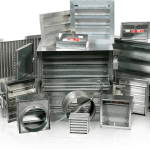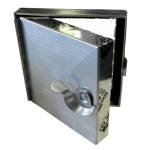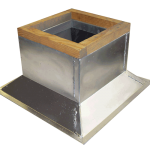
Whether you’re renovating an existing home, moving into a new office, or building a shed in your backyard, it’s essential to have at least some sense of the type of building products you will need, including air control dampers. Unless you’re an expert in heating, ventilation, and air conditioning (HVAC), chances are you have no clue whether or not your space will need an air control damper. Thankfully, Lloyd Industries is here to help by providing guidance on air control dampers and other essential HVAC components to ensure your indoor environment is comfortable and well-regulated.
What Are Air Control Dampers?
A damper is a piece of equipment that is attached to an HVAC unit, duct, chimney, or other control apparatus to regulate the flow of air. Air control dampers can cut off the heating or air conditioning in a room that isn’t being used or regulate the temperature of different rooms in the same building.
In addition to heating and cooling, air control dampers can control the airflow in and out of a building. Air control dampers are particularly useful in situations where employees are working with hazardous materials, such as gases or other fumes, or for restaurants that need to circulate different cooking smells outside of their space.
How Do Air Control Dampers Work?
There are two main styles of air control dampers: automatic and manual. Manual air control dampers feature a lever to manipulate the damper’s blades from open to closed. To close the damper, someone must move the lever manually, hence the name. Contractors typically install manual air control dampers in chimneys, among other places. These dampers help block the flow of air into a home as well as prevent small animals such as squirrels, birds, and raccoons from entering your home.
Automatic air control dampers, like these by Lloyd Industries, also help stop or adjust airflow within air handling equipment but do not require any effort on the part of the building owner or tenant. An automated system, such as a thermostat, controls automatic or motorized dampers.
Automatic air control dampers, like those offered by Lloyd Industries, play a critical role in optimizing indoor air quality and thermal comfort while simplifying the control process for building owners or tenants. These dampers are designed to work seamlessly with automated systems, such as thermostats, which can precisely regulate the airflow without requiring manual intervention. The result is a more efficient and convenient solution for managing temperature and air quality within your space. By providing hands-free control and adaptability, automatic air control dampers contribute to an improved living or working environment, making them an essential component in modern HVAC systems.
Does My House Need Air Control Dampers?
If you find yourself complaining about the temperature differences in your home — whether individual rooms are too hot in the summer or too cold in the winter — you could benefit from adding or adjusting your dampers. Rather than close the registers — the piece that sits over the vent where the duct meets the wall, floor, or ceiling — it’s much more cost- and energy-efficient to ensure air control dampers are installed and functioning correctly.
By adjusting the dampers rather than closing off the registers, you can cut off the airflow closer to the source. Making these adjustments will help save you money and better control the temperature in your home or office.
Regardless of the temperatures that your space experience, it’s in your best interest to invest in some type of air control damper. Lloyd Industries has been manufacturing HVAC products and fire dampers for more than 35 years. The Lloyd Industries team dedicates itself to assisting its customers from start to finish, ensuring customer satisfaction in delivery, quality, and price. If you’re interested in finding the best air control dampers for your needs, contact the Lloyd Industries team today!




